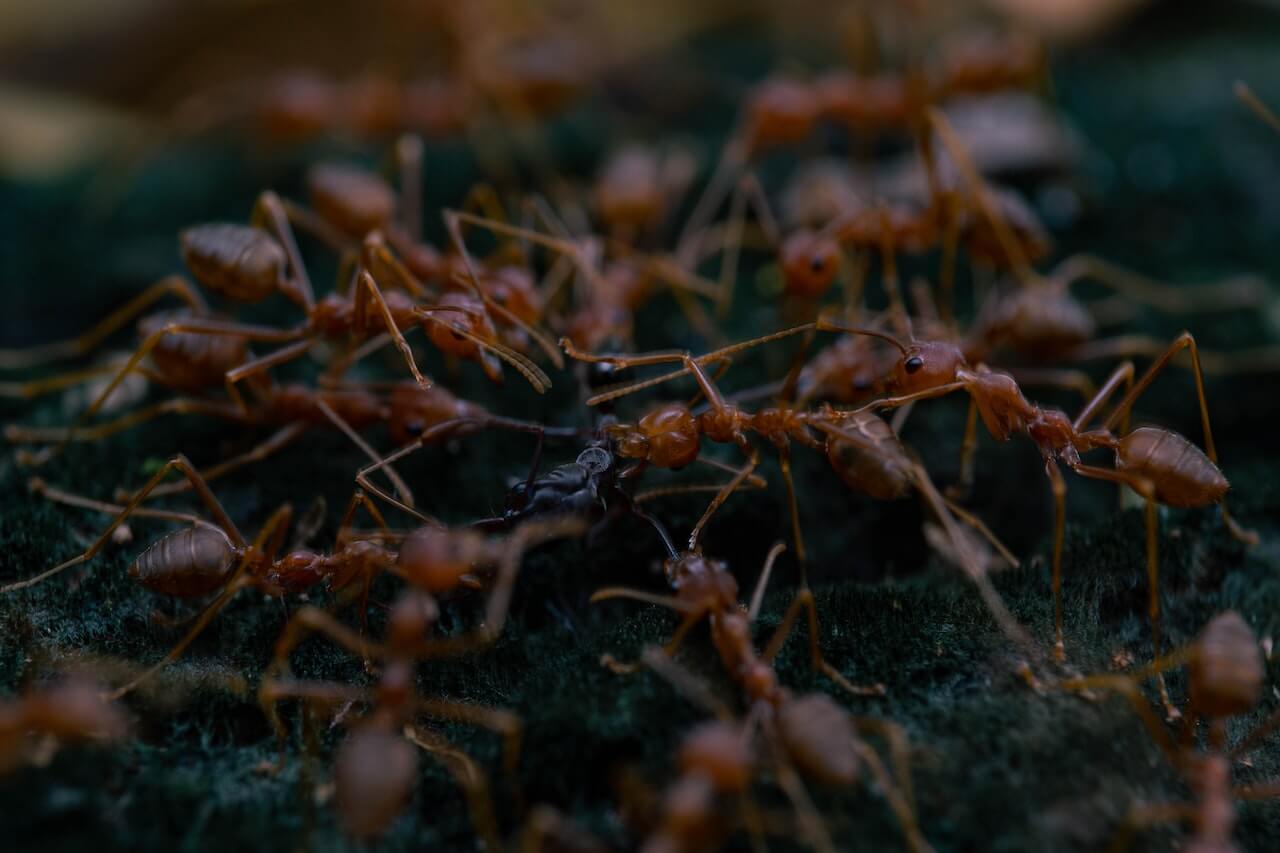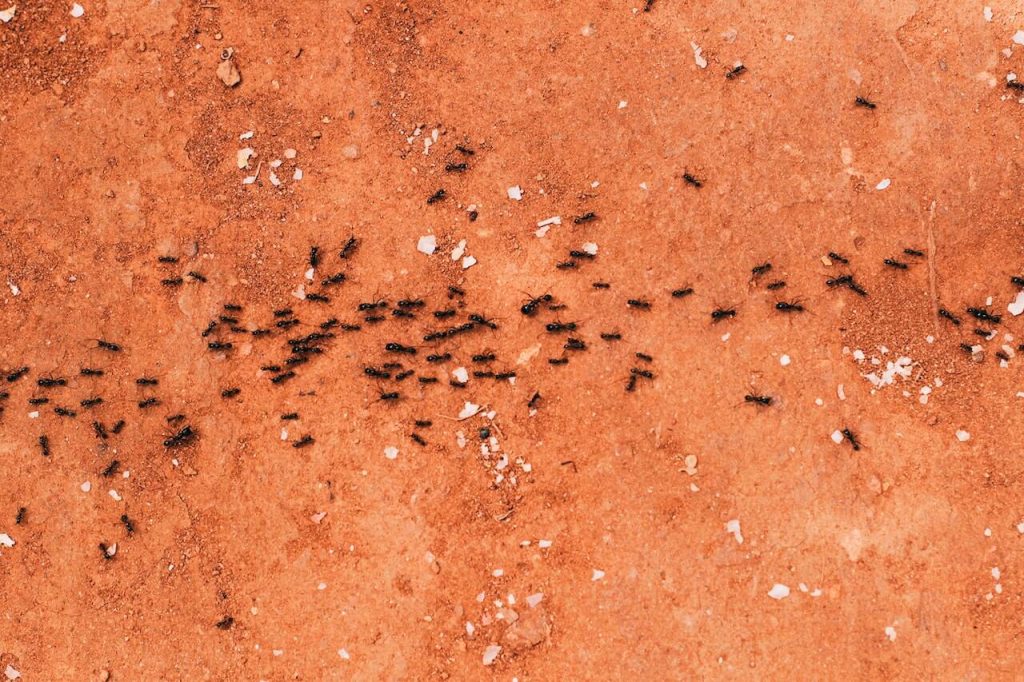Ants in the kitchen. Ants in the bathroom. Ants in the basement. If you are seeing ants all around your home, there might be something about your home that is making it an ant magnet. In this blog, we look at common causes of ant infestations, the true threat that ants pose, and how you can mitigate an ant presence in your home.
What causes ant infestation?
Ants play an important role in the environment, however, they are a common pest. Ants are social insects who will eat practically any kind of food. They prefer warmer temperatures and are most active in the spring, summer, and fall. They make their way into homes for two main reasons – food or nesting. They’ll be attracted to your home if it’s easy for them to find food, water, and a place to nest.
How to prevent an ant infestation
Knowing what causes an ant infestation is the first step in preventing one. The following ant prevention tips can also help:
- Keep your home clean and dry. Most of us clean our homes for welcomed house guests. A clean home also deters unwanted house guests – like ants.
- Block barriers to entry. Ants can fit through tiny spaces. Walk around your home and seal up potential entry points (e.g., small cracks or holes in your walls or around doors and windows) and trim back shrubs and other foliage to remove their bridges into your home.
- Eliminate their food source. Ants seek out homes and businesses in search of reliable food, water, and shelter. Deter ants – and keep food fresh – by storing it in airtight containers.
- Remove moisture. Ants need water to survive. Sound familiar? Inspect your plumbing including underneath your sinks and in your basement or crawl space.
- Remove decaying wood from around your property to prevent carpenter ant infestation.
How to know if you have an ant infestation
Ant infestations are easy to miss if you don’t know what to look for. And because of their small size, ants can easily go unnoticed, allowing infestations to happen quickly. Signs you may have ants include:
- Physically seeing ants. Where there are a few, there are likely many. Ants send out scouts to search for food and shelter and when they’ve found a reliable source, they’ll leave pheromone trails to let the others know.
- Wood shavings and small tunnels in wood. These are telltale signs of carpenter ants.
- Rustling noises in your walls. Put an ear to your floors and walls and listen closely.
Are ant infestations dangerous?
The Pacific Northwest is home to various ant species. Take a look at our pest library to learn more. Generally, most ants – especially little black ants – don’t pose a threat, they are a nuisance, contaminating food and producing unpleasant odors.

Ants species Pacific Northwest homeowners need to know about
- Acrobat ants bite when threatened. They can also pose a risk to properties because they can strip insulation from your electrical or telephone wires.
- Argentine ants don’t have stingers, but they can bite when provoked. Their bites are not severe and don’t pose any health risks. They’re resilient ants who easily reproduce and bounce back quickly from DIY pest control.
- Carpenter ants can bite, and their bites are painful, even though they don’t pose a significant health threat. Carpenter ants can be problematic inside your home because they dig out wood to build their nests causing property damage to your home and other buildings.
- Fire ants can be dangerous. When they sting, it’s painful and can cause welts and allergic reactions. If the reaction is severe and not treated, it can be fatal.
- Moisture ants are not a primary structural pest, but they can cause damage to wood. They are not aggressive, but they can bite, though their bites are painless.
- Odorous house ants are frequent home invaders because they travel in large groups and love to eat and contaminate their food. The problem with these ants is that they smell like rotten coconut when crushed.
- Pavement ants nest in cracks in driveways and under sidewalks. They bite when they feel threatened, and the National Pest Management Association (NPMA) named them an ant species that frequently invade homes.
- Pharoah ants are an invasive species, known as prevalent and uncontrollable pests in the Pacific Northwest. They spread quickly and are carriers of multiple dangerous diseases, and they build their nests in areas that are very difficult for humans to access.
- Thatching ants help control other insect populations. But if they infest, they are an aggressive species that can deliver a painful bite. They can also spray attackers with a harsh chemical called formic acid, which may cause blisters to humans or household pets.
- Velvety tree ants very closely resemble carpenter ants. They are an aggressive species that will bite, but also spray intruders with odorous secretions. They will also chew through wood and leave behind small piles of frass resembling sawdust.
When to call an exterminator for ants
You should call a local pest professional if you do find signs of an ant infestation in your home for three reasons:
- They will be able to inspect your home thoroughly.
- They can perform proper ant species identification.
- They can recommend a safe, practical course on ant control and extermination.

Professional Ant Control & Removal Solutions in the Pacific Northwest
As a business owner or homeowner in the greater Portland-Vancouver area, you shouldn’t have to worry about ants infesting your property. As a local pest control company, Interstate Pest Management’s ant control and removal services can make your worries – and ants – disappear! Here’s what you can expect working with us:
- A thorough inspection of your property to locate the source of the ant infestation and identify the ant species
- Application of ant control treatment or baits
- Adequate sealing of entry points to create barriers
- A thorough ant removal and control report detailing the treatment performed
- Ant control and prevention tips to help prevent future ant infestations from occurring
Our QualityPro-certified team utilizes organic products that work harmoniously with the environment, and we always follow Integrated Pest Management protocols. For a free estimate, get in touch with us here, or call (503) 832-4997.